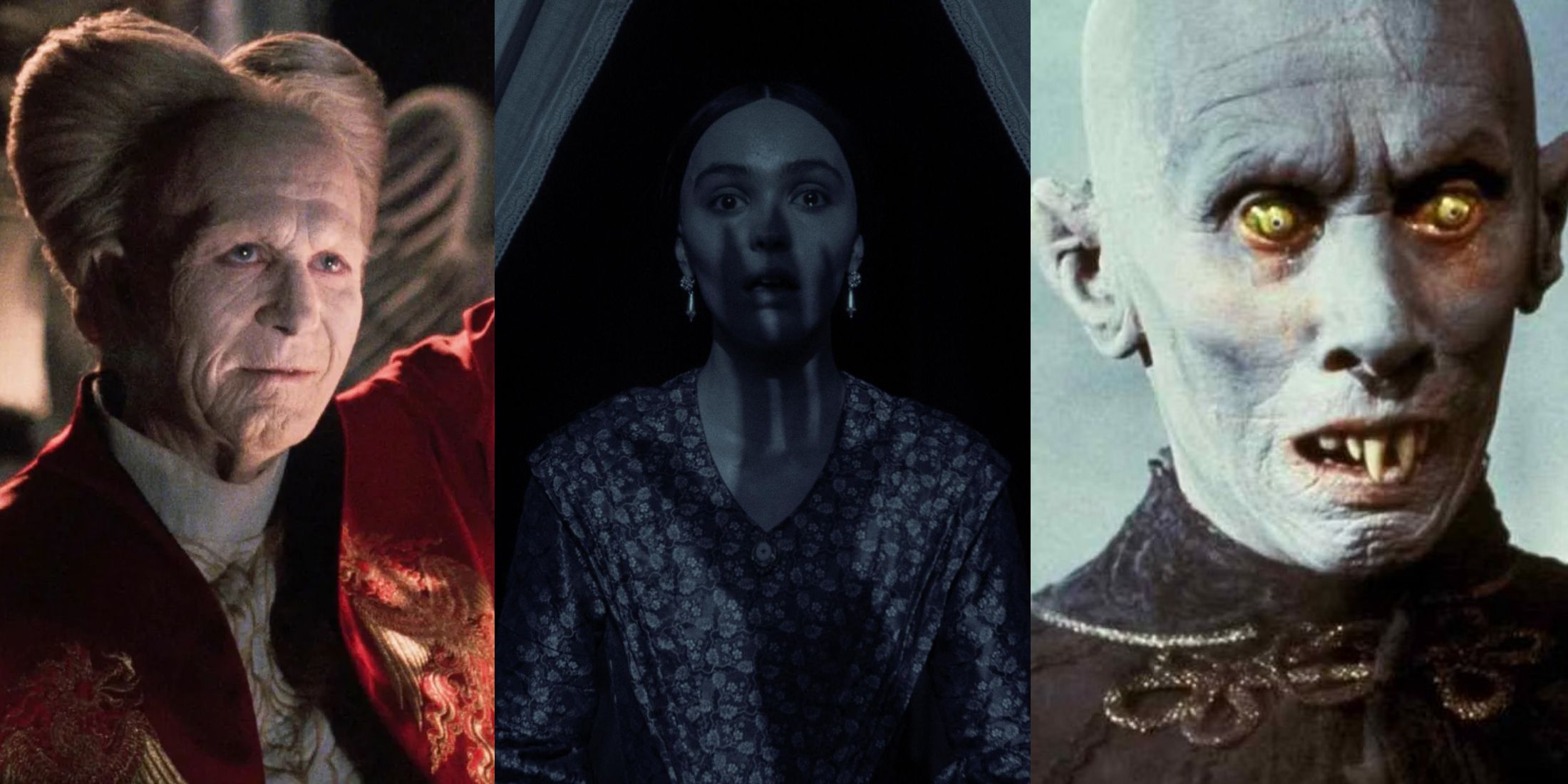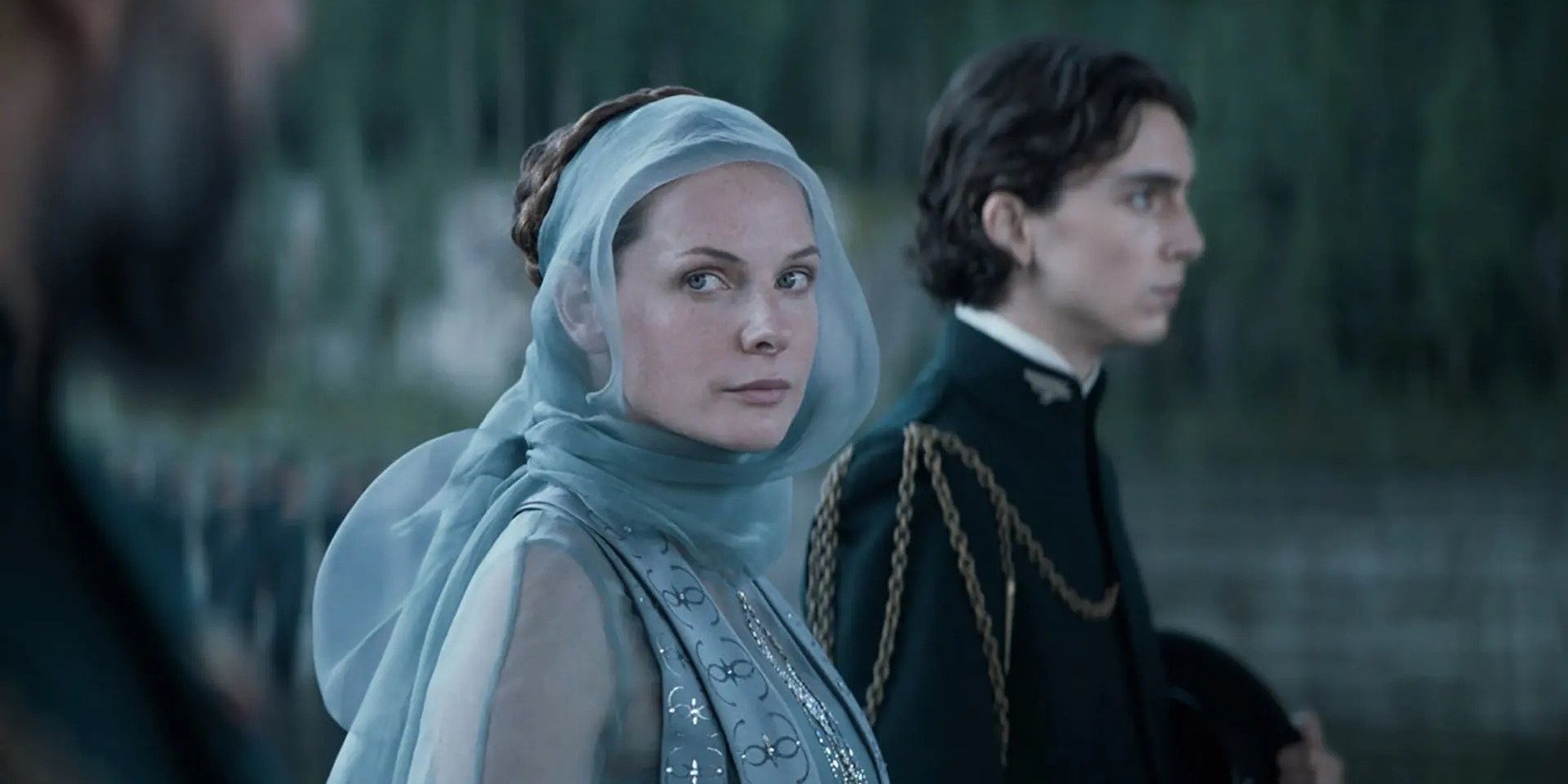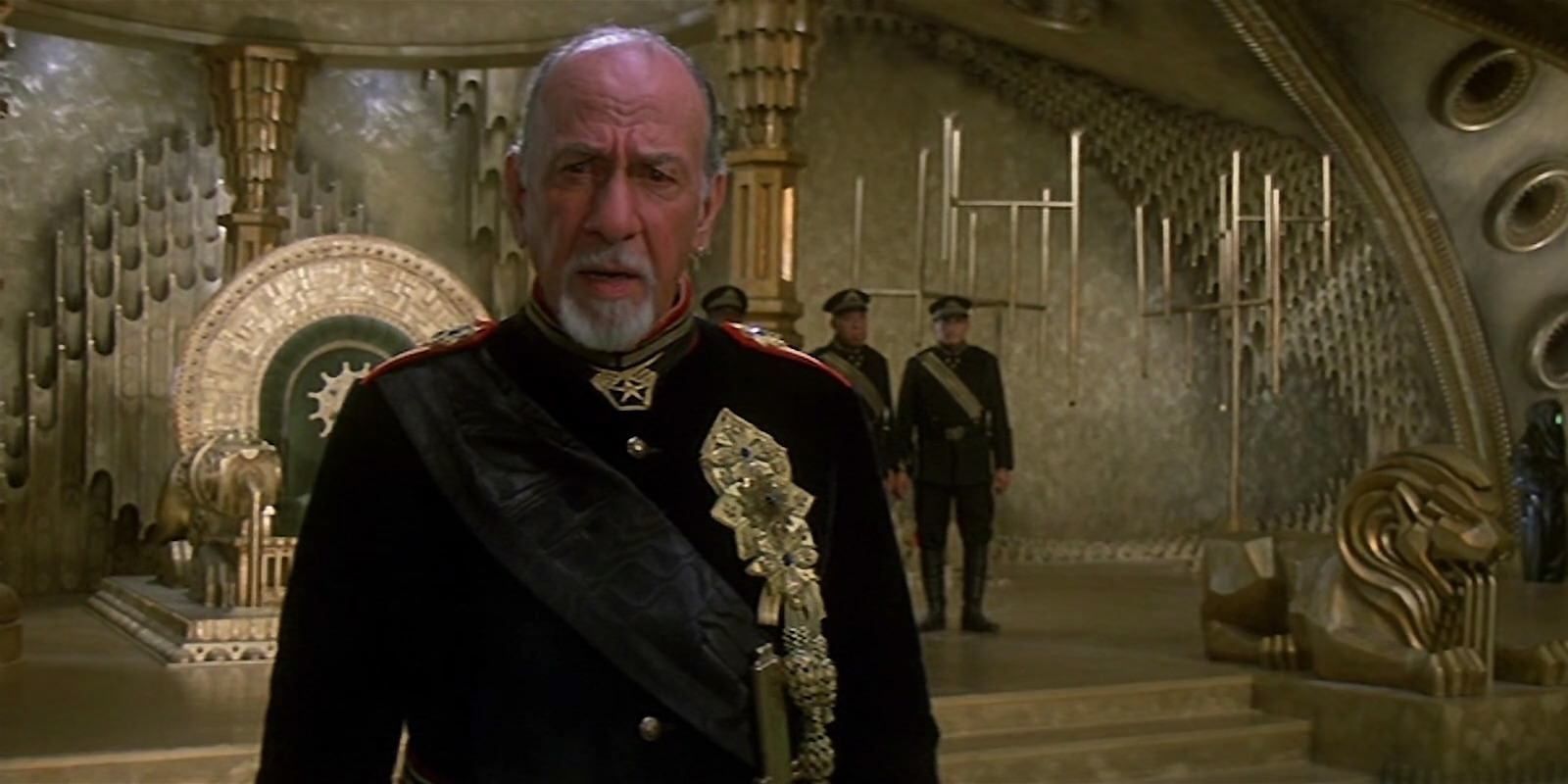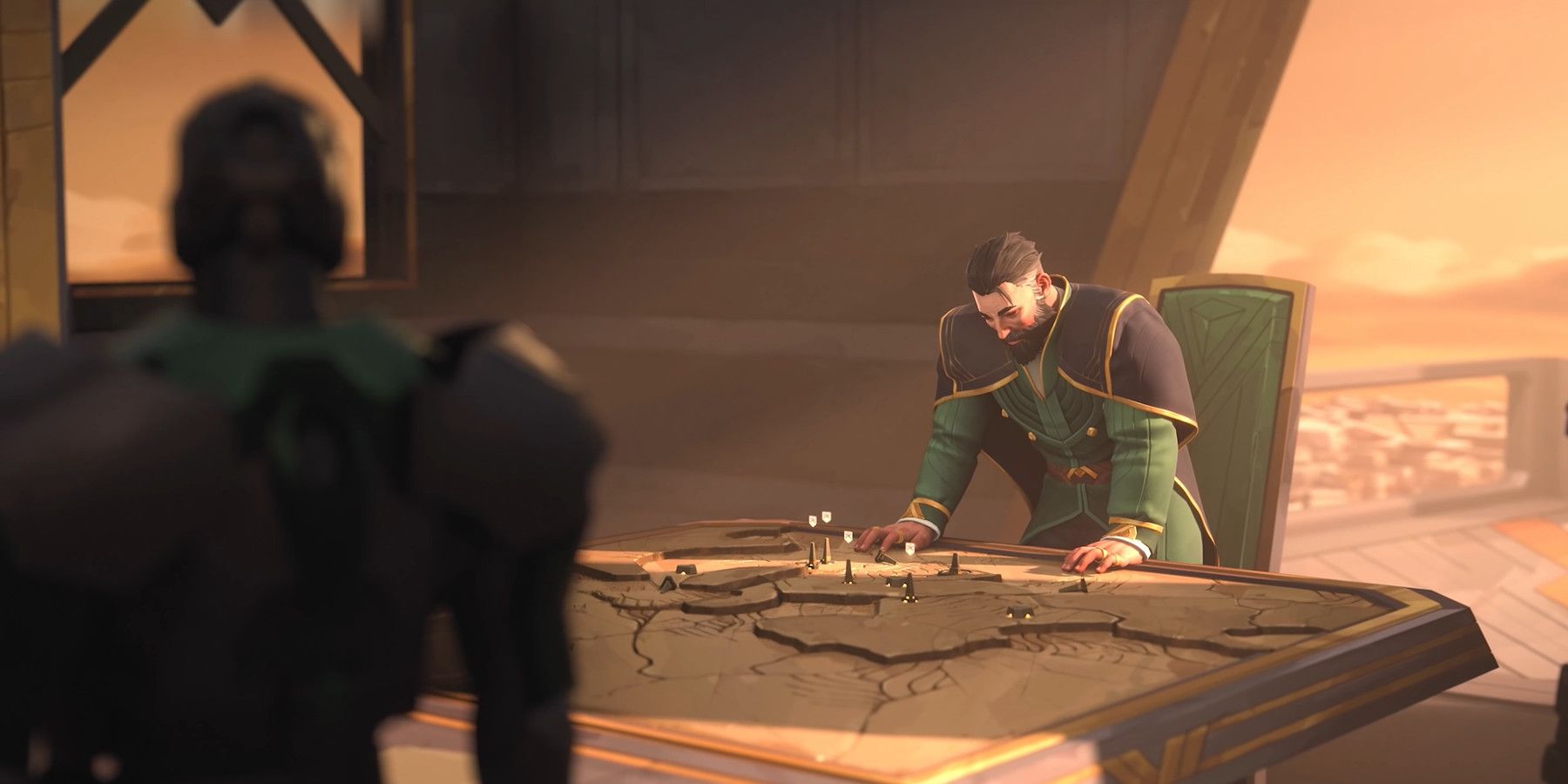Frank Herbert's Dune series features a very complex universe. A lot is going on in the main story, but there are lesser-known massive structures that have a tremendous impact on the story. Everyone who doesn't live on an inhospitable desert planet must live under the tyranny of the Padishah Emperor, the Spacing Guild, and the Federated Great Houses of the Landsraad.
Dune is mostly not a story about government. It's about a lot of things that happen to relate to the concept, but the structure of its governing bodies isn't central to the narrative. However, Herbert did a ton of interesting work behind the main story to set up a unique sci-fi universe that works behind the primary narrative.
The Padishah Emperor
The Emperor is the closest thing the Dune universe has to a singular supreme sovereign ruler. The word "Padishah" is borrowed from Persian. It loosely translates to "great king." The position is handed down through the Corrino family for over 10,000 years. The first Padishah Emperor took power after the conclusion of the Butlerian Jihad, the war against thinking machines. After eliminating all robots and sentient computers at the Battle of Corrin, a man named Faykan Butler ditches his last name and starts going by Emperor Faykan I of House Corrino. Padishah Emperors keep a hold on power through the use of the Sardukar, the most powerful and brutal military force in the universe. The Emperor at the time of Dune is named Shaddam IV, and he was the 81st representative of House Corrino to hold the position.
Shaddam was portrayed by José Ferrer in the 1984 film. Christopher Walken is set to play him in the upcoming Denis Villeneuve sequel. Shaddam is a monster, as are most of the major characters in the franchise. In the original Dune, his most significant action is handing Arrakis to Duke Leto Atreides. He chooses to hand over the most valuable planet in the galaxy to mark a political enemy for death. His scheme works for a time, but it also allows Paul Atreides to live among the Fremen locals. Shaddam and his family are cruel autocrats who are willing to kill millions to maintain the power they earned through brutality. Luckily, they aren't the only political body in the galaxy.
The Noble Houses of the Landsraad
Dune employs a form of feudalism as its governmental structure. The Landsraad is the incorporated organization of Noble Families throughout the galaxy. A House is a family that claims ownership over a planet or system. Houses are constantly scrambling for territory and fighting over land. Above regular Houses, the Landsraad is governed by the High Council, controlled by the leaders of the most successful clans. The High Council primarily exists to resolve disputes between Houses. Their presence stands in the way of eternal war, but they're still frequently involved in conflict. They predate the Emperor, but they're one of the most important checks to its power. House Atreides and House Harkonnen get most of the attention in the original novel. Consolidating the Houses into the Landsraad gives them the power to oppose the Emperor's military might and ensure peace, but the Council is also slow and profit-driven. Their presence is necessary, but they don't do as much as they should.
The Spacing Guild
The third major power in the Dune universe isn't as political as the other two. Interstellar travel is the scientific innovation that made almost every aspect of the galaxy possible. It's what makes the spice so valuable. The Spacing Guild is the financial organization that controls the ability to travel faster than light. Very little is known about the Guild's leadership, but their function in the universe is clear. Guild navigators are mutant psychics who are capable of peering into the future. Traveling across space without a navigator is either a decades-long endeavor or a suicide attempt. The Spacing Guild makes a theoretically infinite profit off of their navigators, but they don't bother with politics. They don't need to influence policy. They have a resource that no one else can replicate or live without. They aren't in competition with the Emperor or the Landsraad, but neither side can function without their aid.
Dune is dominated by one all-powerful autocrat, a conglomerate of the landed gentry, and a company that controls transportation. All three groups have tremendous problems. They're plagued by corruption and greed. The Universe doesn't function well under their rule. Much of the narrative of Dune is about depicting the disastrous weaknesses in these organizations. Over the course of the plot, Paul will unseat and destroy each of the three major powers. It's an insightful commentary on the nature of power and the downfall of civilized government. Not that the galaxy is better without them. The three powers are all-consuming bodies of incalculably wealthy monsters who seek to own everything and have already largely succeeded. At least it's fun to watch them fall apart.







